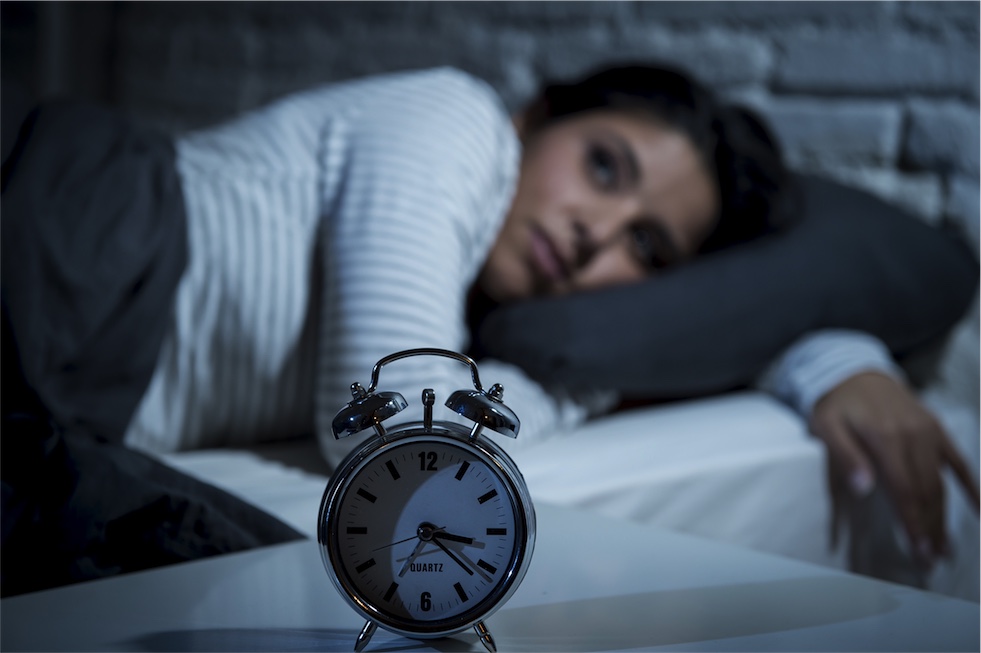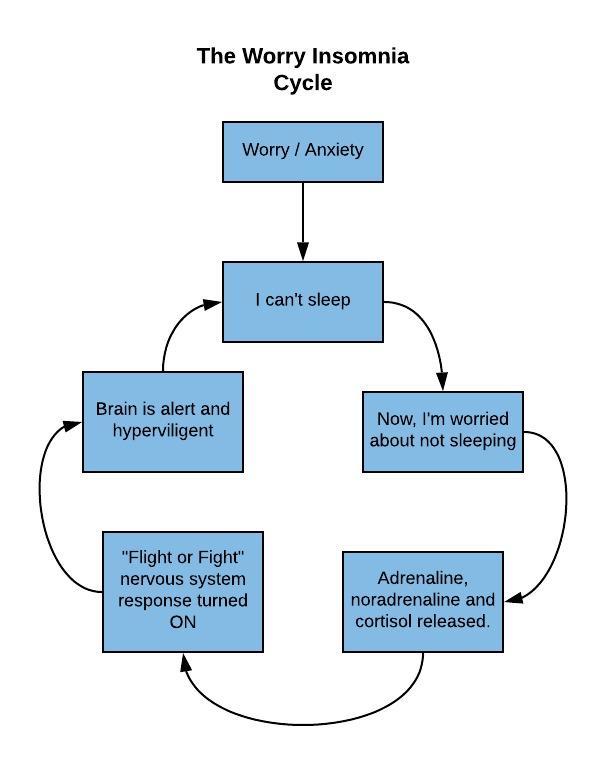End those sleepless nights
Onset insomnia is a common sleep issue. You get into bed, ready to welcome the Sandman but “bing” your brain kicks in a starts thinking about all the things. Even things you didn’t know you could think about. Things that make zero sense. Nup, sleep is not happening. The harder you try to grasp onto sleep, the further away it moves until sleep becomes a minuscule dot in the review mirror. Sound familiar?
Preparing for a restorative night’s sleep starts well before you get into bed. I would argue it happens as soon as you wake up. For this article, we’ll start with what is happening from the end of your workday to your bedtime.
Think about toddlers. They have a set bedtime. (You should too!) If you want your toddler to go to sleep without tantrums you’ll give them a meal, allow some quiet play, a nice warm bath followed by a bedtime story and lights out. The gist of this is pretty simple and applies equally to adults. As bedtime approaches, you want to relax the nervous system so it can effortlessly slide into the Land of Nod. Ah!
How long should it take to get to sleep?
Many people worry that they have sleep issues if they don’t go to sleep as soon as their head hits the pillow.
In reality, this “out like a light” is not an indication that all is well with your sleep. It may indicate you are exhausted. Someone with healthy sleep will take between 10-30 minutes to go to sleep. That’s the normal range.
Going to sleep quickly – calm your overactive mind
One of the biggest reasons people have with going to sleep is it’s the first time their brain has had some clear space without being overwhelmed by input from the internet, TV, other people or those cute otter videos on
Give your mind a little free time before you get into bed.
Eight things to get your brain ready for sleep
- Write stuff down – If you’ve captured it on paper, your brain won’t have to stress about remembering it. It’s helpful to go
analogue with this. The act of putting pen to paper helps the brain integrate the information. An action or do list will signal your brain that it doesn’t have to think about itany more for today. Reinforce this by telling yourself it as well.
- Plan the next day: Allocate 10 minutes at the end of your workday to plan out what you are going to do the next day. This is not a time to do tasks, just note down what needs doing and what appointments you have for the following day.
- Stop checking emails when you’re not at work. Very few of us need to monitor our work emails outside of work. Unfortunately, modern technology has made it very easy for work-life to spill into our downtime and relaxation. Make it a policy to live like you don’t have a smartphone. When you’re not at work, it’s time to relax – an email free zone. In most cases, if people know you don’t check email after hours, they will stop expecting you to respond immediately. Boundaries are the best!
- Journaling: Writing about what went on in your day, the wins, the challenges, the ideas, how you are feeling can be a useful tool to unwind. As you will be the only one reading it doesn’t have to be a literary masterpiece or be an epic tale. Journaling is one of my wind-down activities, and I spend 10 minutes. With online journals available, you can be sure no one else in your house is going to be tempted to sneak a peek if privacy is a concern.
- Mindfulness, meditation or breathing techniques
Relaxation breathing is particularly beneficial as the slow expansion of the lungs triggers stretch receptors, which activate the Vagus nerve and calm the nervous system switching it from “flight or fight” to “rest and restore” mode.
There are many useful resources and apps to explore meditation. I like Calm, Oak and Headspace.
- Reading a book –
analogue style. Choose something non-work related that will take you out of your daily thinking. Read with lamp light that provides adequate illumination.
- Listening to relaxing music (classical, meditation, relaxing) Streaming services such as Spotify have many curated lists around these themes.
- Other relaxing hobbies which take you out of your headspace such as drawing, crafts, model building, calligraphy, knitting and so on. These shouldn’t involve screens/computers.
Timing of evening meal
Eat your last meal (or snack) 2-3 hours before you want to go to sleep. Digestion raises your core body temperature. To fall asleep, you need your core temperature to drop slightly. Give your body plenty of time to complete digestion before bed.
Bright lights & screens
The sleep hormone melatonin is like a vampire – it is more potent in the dark One of the easiest ways to support it is to create a dimly lit environment in the hour before bed.
Dim the lights
Up until 150 years ago candles and oil lamps were the only sources of light and they are much dimmer than modern LED or fluorescent bulbs. One hour before bed swap overhead lights for lower wattage, warm
Switch off electronic devices
The blue light and brightness of tablets, smartphones
Physical activity level
Daily physical activity increases the quality and quantity of sleep, so it’s recommended. However, timing is important. Avoid moderate to intense exercise in the three hours before bed as it increases your core temperature and metabolic rate.
No caffeine after midday
Many people don’t realize that the half-life of caffeine is 6-10hrs (depending on your individual genetics/health of liver). So that 3:00 pm pick me up coffee could still be only half processed at 11 pm. If you have issues with sleep, have a rethink of how much caffeine you are having and when you are consuming it. The two pieces of dark chocolate after dinner may just be making it a little more difficult for you to sleep.
Caffeine is found in coffee, tea (black, green, white), chocolate, energy drinks, and some herbal teas (Yerba mate).
Warm shower or bath
Because your core temperature needs to drop to feel sleepy, taking a warm shower or bath half an hour before bed can support this. The warm water will draw the blood away from the core to the skin and drop the temperature slightly.
Go to bed when sleepy
The longer you are awake, the more your sleep drive increases. This is a build-up of adenosine in your nervous system. (Caffeine blocks adenosine – which is one of the reasons it keeps you alert).
All these habits support nervous system relaxation.
They are not an instant fix, but they will train your body to unwind and be primed for sleep.
Also, if you do get into bed and can’t get to sleep within 30 minutes, get up and do something relaxing (as per the suggestions above) until you feel sleepy. You don’t want to start associating going to bed with being awake.
In summary, here’s what a sleep-promoting evening routine might look like. Adjust timings to suit your schedule!
Your short guide to fall asleep quickly
5 pm Workday ends, spend 10 minutes planning the next day.
7 pm Dinner finished
9 pm Lights dimmed, screens off, unwind activities
9:30 pm Warm shower or bath
10:00 pm Bedtime
10:15 pm Sleep..zzzzz
6:00 am Wake up fully refreshed and ready to be fabulous!
If you liked this article you might also enjoy:
Why do I wake up early in the morning?

Need help with your health?
Norelle Hentschel is an experienced Naturopath with a clinic in Stones Corner, South East Brisbane and also offers Telehealth consults Australia wide. She enjoys supporting her clients to reach their health goals.
Want more articles like this?
Receive a monthly digest of natural health information to help you become “health” sufficient!
PS. Your inbox real estate is precious, and we will never annoy you with sales pitches or share your details with anyone else. One email a month — that’s it.



Great blog. This was really helpful stuff. I wish you luck as you continue to follow that passion.
Thanks for your kind words. Glad to hear you found it useful!